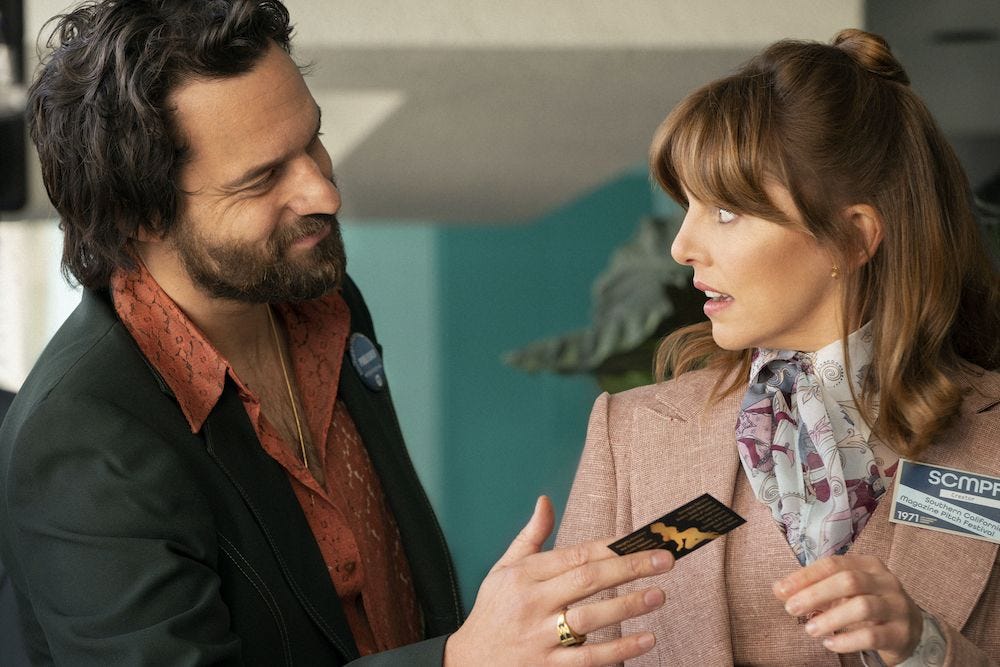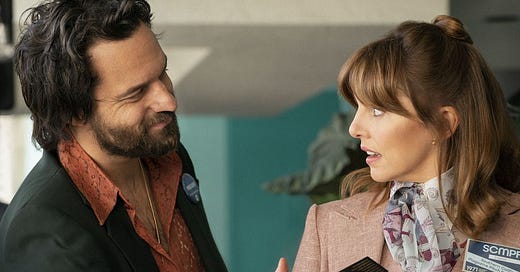Review: Minx
Jake Johnson and Ophelia Lovibond star in Minx - the least dirty TV show you will see about dirty magazines

What if Diane Chambers launched a porn mag for women in the 1970s? HBO Max's new fun and cheeky half-hour comedy about the launch of feminist-minded nudie mags in the 70s may not directly be a love letter to iconic 80s sitcom Cheers (there's too many penises on screen per minute for that), but its difficult not to watch Minx and not see that comparison …




